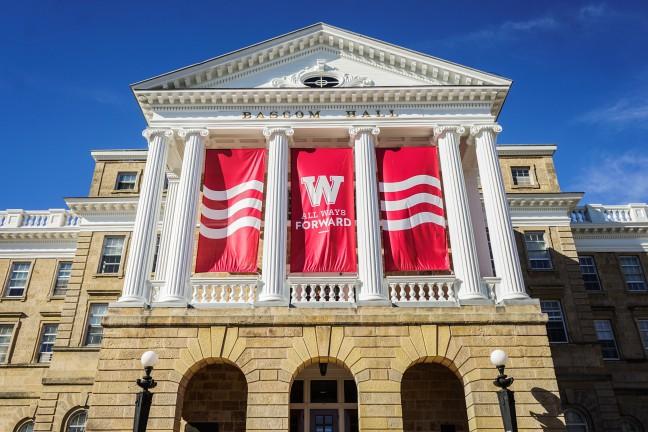A University of Wisconsin ad hoc committee is looking into whether mentoring students in science, technology, engineering, mathematics and medical fields can increase diversity.
This National Academy of Sciences study looks at undergraduate and graduate mentoring of stereotypically marginalized groups of people within STEM fields. Traditional minority STEM students include women, individuals from racial or ethnic groups with historic underrepresentation and first-generation college students, according to a UW press release.
The study will take place over the next two years, with sponsorship from the Board of Higher Education and Workforce and the Committee on Women in Science, Engineering and Medicine, UW professor of medicine Angela Byars-Winston said. Byars-Winston is the leader of the committee.
“We really want to advance the application of evidence-based mentorship,” Byars-Winston said. “We know that a good deal of mentoring in STEM fields is done without intentional preparation, and often based on mentors’ past experiences of how they themselves were mentored for better or for worse.”
Byars-Winston said the goal of the committee is two-fold. It will seek to elevate both levels of academic knowledge and the practice of effective mentoring.
The committee will look at different models of mentoring within STEM fields, Byars-Winston said. From there, the group will identify the most effective practices and evaluate ways to further advance the successful mentoring practices to make the relationship between mentors and trainees as powerful and as beneficial as possible.
“We want someone in a legislative role to be able to pick up the final report and say, ‘now we know the state of knowledge of effective STEM mentoring techniques, and that can guide policy-making on scientific workforce development for tomorrow’s labor force,’” Byars-Winston said.
UW sophomore Sarah Yoon is majoring in mechanical engineering and vouched for the importance of having a mentor within her chosen field of study. As both a woman and a racial minority, Yoon said she has often felt alienated in her pursuits but having a mentor has helped tremendously.
Women account for less than 14 percent of the students in the mechanical engineering program, Yoon said. While she was aware of the statistic, Yoon said it did not make a significant impact on her until the first semester of her sophomore year.
“I walked into a 300-level mechanical engineering class and quickly realized that I was both the only female and racial minority in the room,” Yoon said.
That soon became a trend in other upper-level classes and meetings, Yoon said. Yoon detailed her struggles with imposter syndrome and how she grappled with whether or not she wanted to stay in the engineering program due to feelings of isolation from her mostly-male peers.
Imposter syndrome is commonly experienced by “young scientists” who feel as though they are in over their heads in their chosen field, or like their accomplishments can be chalked up to luck or deceit, according to report from Science Magazine.
“I think this is a common trend amongst many women in STEM, especially those in engineering, because we make up such a small percentage of our overall class, which makes it a lot easier to feel alienated,” Yoon said.
Since women in STEM classes are often outnumbered and over-powered by their male peers, Yoon said she has had to learn to be assertive and persistent just to be acknowledged or respected in a male-dominated group.
Having to repeatedly assert herself can be extremely discouraging and is one of the reasons many women leave the field completely, Yoon said.
Having a mentor is something that has enhanced her experience as both a female and minority engineering student, Yoon said.
“It is important to have some sort of support system, especially with all of the challenges that come with being in STEM and to be able to seek advice from someone who understands or at least recognizes what you are going through,” Yoon said.
Byars-Wilson and her committee are working toward determining the best mentoring practices so more women and minority STEM students can feel comfortable in their chosen fields and be positively impacted by a mentor-student relationship like Yoon have been.
The discoveries made within the committee will be evolving over the next year through a series of national workshops and listening sessions, Byars-Wilson said.
The committee will hold its first event on April 11-12, 2018 at the National Academy of Sciences Building in Washington, D.C. It will be called “Workshop on Inclusive Mentorship Excellence in STEMM: New Knowledge, Ideas, and Practice.”


